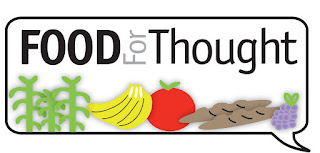"...to live in the most health promoting way, you do not have to exclude all animal products."

The following is taken directly from the Conclusions chapter of Joel Fuhrman, MD's book Eat For Health, found on pages 167-170.
(This is a questions and answers part of the chapter, as a reader writes:)
Question: Through the four phases of this book, you have been reducing the intake of animal products until they are only consumed two or three times a week. Would a total vegetarian (vegan) diet be better for one's long term health than one that includes these few animal servings per week?
Dr. Fuhrman:
"There is no clear scientific data that indicates a total vegetarian or vegan diet would be more life span promoting than one with two or three servings of animal products per week. The available research on the issue shows there is no clear answer, but a large amount of evidence supports the idea that there is not a large difference among diets that get zero to 15% of their calories from animal products, as long as the diet is otherwise micronutrient rich. (Plant foods have large amounts of micronutrients- animal foods do not). To play it safe and to maximize intake of plant based nutrients, I recommend following a nutritarian (plant based) plan and holding animal products to under 10% of total calories. A diet that falls within this range is healthy and can maximize your health and lifespan.
Keep in mind the overwhelming majority of Americans consume more than 40% of their calories from animal products, and some popular, high protein diets recommend an even higher intake. The world's scientific literature is clear that for maximum health and longevity, this amount of animal consumption must be dropped significantly.
A careful review of the science leads to the inescapable conclusion that animal products must be limited; the exact degree of that limitation is still up for debate.
In my years of practice, I have infrequently encountered some individuals who had higher protein needs than could be easily met with a total plant food diet. This finding was initiated with some complaint thought to be linked to their vegan diet and then confirmed with blood work showing low amino acid levels. When the diet was adjusted to put back a small amount of animal products, the difficulty often resolved. My first step in advising appropriate dietary modifications for these people was to include more plant proteins such as (raw, unsalted, unroasted) sunflower seeds, soybean foods and whole sources of plant fat, so if animal products are still indicated the amount needed would be minimal. Even these rare individuals who showed a need for some animal-based foods in their diet thrived with limiting animal product intake to three small servings a week.
Overall, for all people, varying animal intake between zero and three servings a week is likely to be healthful as long as the other elements of the diet are properly executed (making plants the foundation of your diet).
The longest living population living in the the U.S. is the Californian Seventh Day Adventists. When about 34,000 of them were followed between 1976 and 1988,
it became apparent that those who adopted the Adventist-recommended healthy behaviors, which include veganism, or near vegan diets, lived about 10 years longer than other Californians. A review of 6 studies on long term vegetarians and low meat intake was associated with significant increases in longevity. This data was also corroborated in the massive China-Oxford-Cornell Study. For example, disease rates for heart disease and cancer continued to drop as people went from an average of seven servings of animal products per week to less than two.
The other interesting and important observation on diet and longevity is that the longest-lived populations in the world such as the Hunza in Central Asia, the Vilcabamba in South America, and the Okinawans in Japan all show that these ultra-long-lived people eat a diet that is nutrient rich, with 80 to 95% of calories coming from whole plant foods. A diet rich in vegetables and very low in animal foods is the hallmark of these ultra-long-lived societies.
Overall, studies point to the fact that the intake of whole plant foods must be very high to assure very low rates of cancer and promote maximum lifespan in humans. The advantages gained from a vegetarian diet, particularly for disease reduction, are also because individuals not eating animal products are more likely consuming a greater amount of high-nutrient plant foods. The interaction between nutrient-rich plant food and the low intake of animal products is the key combination for dramatic advances in healthy life expectancy. So the critical issue for disease reduction is not whether one is a pure vegan or not; the issue is the micronutrient quality of the diet in conjunction with a comparatively low intake of animal products. In essence, one must be a nutritarian, which means you are a health-conscious eater whose primary dietary concern is to maximize nutrient density.
The bottom line is that to live in the most health-promoting way, you must eat plenty of vegetables, fruits, and beans, with some seeds and nuts, but you do not have to exclude all animal products."

